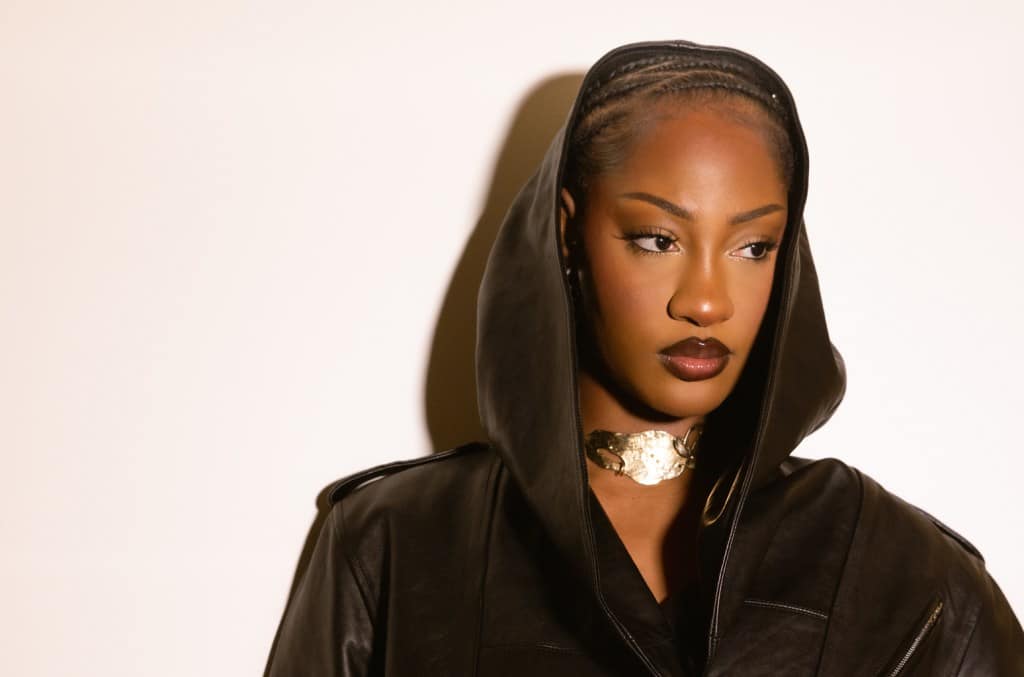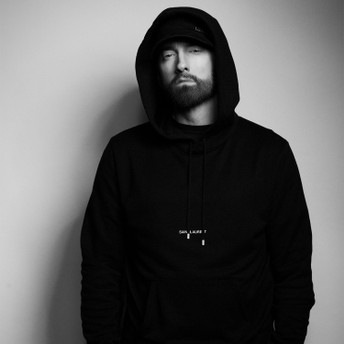Blog
Page: 23
Trending on Billboard Luke Combs has performed on many of the most coveted stages around the world, but this two-time CMA entertainer of the year winner would also be open to performing on ‘s biggest stage. During his Nov. 24 appearance on MNF Manningcast, hosted by NFL quarterback greats Eli and Peyton Manning, the discussion […]
Trending on Billboard
The last time Simon Cowell saw Liam Payne was a year before the former One Direction singer and solo star plunged to his death in a fall from the third-story balcony of a Buenos Aires hotel on Oct. 16, 2024. Speaking to the Rolling Stone Music Now podcast this week, Cowell described their final meeting and the conflicted feelings he’s struggled with in the time since about his role in thrusting the 31-year-old singer into global fame.
Explore
See latest videos, charts and news
“I saw him a year before this happened. He came over to my house. We talked about his son and being a dad,” Cowell said Cowell said in a Rolling Stone Music Now podcast (Payne talk begins at 40-minute mark) about their discussion of Liam’s now seven-year-old son, Bear, with former partner Cheryl Cole. “I remember saying, ‘Music is not everything, by the way. You’re in a position where you can decide when you want to put something out and when you don’t want to put something out. But don’t let it run your life anymore. Find something else that you’re passionate about that will bring you happiness.’”
Stuck on the question of what, if any role, he played in Payne’s post-fame struggles, Cowell — who put Payne together with fellow solo X Factor UK contestants Harry Styles, Niall Horan, Louis Tomlinson and Zayn Malik in 2010 to form the group after Liam’s previous unsuccessful solo attempt on the show — said he still wonders about that himself.
“You ask yourself that question: ‘Could I have done anything more? What would’ve happened to Liam if he hadn’t been in the band?’ I don’t know,” Cowell said. “All I know is having spoken to his mom and dad recently, all they kept telling me was he was so proud of what he had achieved. That music and succeeding to him was everything. Absolutely everything… I wish I could turn back the clock, of course, to that day he came to my house. When I spoke to him that day, if I’m being honest with you, I felt really good about him. I thought, ‘Wow, you seem in a really good place.’”
Cowell, who noted that he keeps in touch with some of his former musical charges, but not all, gave Payne some advice about life in general that day and about being a dad during their three-hour hang. “I didn’t feel worried about him after he left,” said Cowell. “But then of course when I heard the news, probably the only person apart from when I lost my mum and dad, when it hit me really, really bad, someone who’s not family. This is really, really tough.”
Pod host Brian Hiatt asked Cowell if he read any of the comments attempting to cast blame on the America’s Got Talent host for what some fans claimed was his part in Payne’s death and whether that unfounded finger-pointing was hurtful.
“I don’t read any of this stuff because if I did, you would just torture yourself,” Cowell said about speculation based on truth and innuendo. “The idea that you are essentially responsible for somebody’s life 10 years after you’ve signed someone? You can’t do that. You can’t live with them. I always say to anyone, ‘I’m always here if you need me.’”
He clarified that when Payne reached out to him that last time it wasn’t because he said he was in distress, but because he wanted to get together with his mentor and early supporter who he missed chatting with.
“You have that worry for anyone who’s young, whatever career they go into,” Cowell said about his thoughts on the potential pitfalls of young stardom and the ravages of social media on young minds. “Particularly now, I think the world had genuinely never known a time where everything is so divisive in a really bad way. I think social media has made people more unhappy than happy,” he added, noting he “switched off” his cellphone eight years ago for that very reason.
After news of Payne’s death spread, Cowell posted a loving note to Liam on Instagram, writing, “You never really know how you feel about someone until a moment like this happens. Liam, I am truly devastated. Heartbroken. And I feel empty. And I want you to know how much love and respect I have for you. Every tear I have shed is a memory of you.”
Trending on Billboard
Nothing marks November better than Billboard African Rookie of the Year Odeal releasing a new project. In keeping his OVMBR tradition alive, the British Nigerian star dropped The Fall That Saved Us EP, a neo-soul/R&B-driven reflection of complicated romance and self-discovery that builds on the somber world he created in his November 2024 EP Lustropolis and that arrives four months after The Summer That Saved Me.
But what did come as a total surprise this month was Tems‘ Love is a Kingdom EP. Across seven tracks, she confronts the fickleness of love head-on, while embracing self-renewal. Tems, along with rising Afropop star Taves and more notable artists, also appear on Show Dem Camp’s masterful AFRIKA MAGIK album, which is deeply rooted in the timeless sounds of the continent.
We’ve highlighted 10 of our favorite new songs by African acts that have come out roughly within the last month. Check out our latest Fresh Picks, and catch a vibe with our Spotify playlist below.
Show Dem Camp & Ajebutter22, “Small Chops and Champers”
Tec and Ghost of Show Dem Camp toast to the soft life with alté leader Ajebutter22 on the celebratory “Small Chops and Champers” track from the Nigerian rap duo’s latest album AFRIKA MAGIK. Named after nibbles and bubbles, the laidback collab delights in their successes. “For us, AFRIKA MAGIK isn’t just an album; it’s a cultural document. A reminder that our stories, in all their beauty and chaos, are magic,” SDC said in a press statement.
Taves, “Popstar Party”
Taves gets the “Popstar Party” started with his electric new single from his forthcoming debut studio album Popstar. The Afropop star captures the intoxicating thrill of fame and late-night festivities with his melodic bravado, while SirBastien’s guitar solo on the outro further highlights Taves’ moment in the spotlight. “‘Popstar Party’ is me having fun in the sun – letting go, unleashing energy that’s been building inside me,” Billboard’s former African Rookie of the Month said in a press release. “I want people to move, to feel alive, and to see what kind of world I’m bringing in Popstar.”
Nonso Amadi, “Drown”
Nonso Amadi passionately pleads with a lover to not let him “Drown” in his deep affection for her on the highlight track from his To Cry a Flood EP. The Afro R&B trailblazer’s suave flow anchors the vulnerable number, which interpolates Amerie’s 2005 classic “1 Thing” on the chorus.
Odeal feat. Wizkid, “Nights in the Sun”
Amid Odeal’s wintry world of Lustropolis, the “Nights in the Sun” closing track from his The Fall That Saved Us EP radiates with a refreshing warmth. Odeal imagines sweet mornings with someone over P2J’s sweltering production, while Wiz dreams of “sipping on fine wine, a perfect whine.” “This is the glow, the nights that feel like they could go on forever, where everything is light and easy again,” Odeal told Clash. “[Wizkid] carries that feeling of effortless joy and nostalgia in his voice, and it brought another dimension to the world I was building.”
Tems, “What You Need”
Tems delivers a hauntingly beautiful epilogue about a relationship not worth salvaging on the “What You Need” standout track from her surprise EP Love Is a Kingdom. Her frequent collaborator GuiltyBeatz’s stripped-back R&B production gives her the floor to stand firm in rebuking a love that no longer belongs to her, singing, “Your love is not my lifeline, you love is not my home.” After Tems previewed it during an Instagram Live years ago, even declaring “this song is not coming out,” “What You Need” absolutely deserves a home in her discography.
Tems, “Big Daddy”
From its first notes, this latest single from Tems — off her new EP Love Is a Kingdom — grabs the listener, well before her distinctive voice invites you into her latest tale, a cutting takedown of an ex who has come crawling back. It’s a celebration of her own power over a person she used to love, and the ways in which she wields it. But more than anything it is also a song with a clear and nuanced vision, not unlike the star herself. A welcome return.
King Promise & Davido, “Bad Habits”
Davido is, of course, an established superstar by now, but King Promise is still on the rise, and he may have one of the best voices in the Nigerian pop scene right now, as evidenced by his breakout his “Terminator.” On this track, though, he trades in obvious vocal prowess for songcraft, and this song succeeds in every way, from the production to the vibe to the lyrics that celebrate the level of success that Promise is exuding right now. Davido adds to that effortlessly, creating one of the best African songs of the year.
LAX & Olamide, “Belinda”
L.A.X. has a strong track record now of crafting irresistible vibes, and “Belinda” is no different on that front. This one, produced by Davido collaborator Ragee, is a little more hard-driving than some of his previous work, but leans strongly on amapiano elements to hammer home its beat, while the legendary Olamide slides through with the assist on this lovesick yet confident cut.
Ayo Maff, “Tension”
Still just 20 years old, Ayo Maff is the next young Nigerian singer/songwriter to emerge on the scene overflowing with talent. He’s already got an EP (Maffian) and an album (Prince of the Street) under his belt, and “Tension” is his latest single to raise the bar on what he’s capable of. With ambitious production reminiscent of Fireboy DML’s Playboy album, “Tension” leans contemplative and emotional, but remains catchy and positive, with a pulsing undercurrent that keeps the song from slipping into melancholy. It’s a two-minute statement of intent: next year is his.
Omah Lay, “Waist”
Omah Lay has kept a relatively low profile since breaking out with his Boy Alone album a few years ago, but “Waist” feels like a return to form for the young artist — versatile, creative and unexpected in different ways, all of which keeps people coming back to his music again and again. He feels like a refreshing voice in a scene that at times can follow trends, and this track portends big things to come in his next era.
Trending on Billboard
Most artists probably wouldn’t want to be on the receiving end of a diss from Eminem, but Lil Yachty wears it like a badge of honor.
Em took a shot at the Atlanta rapper on 2018’s “The Ringer” when he rapped, “Get this f—kin’ audio out my Audi yo, adios/ I can see why people like Lil’ Yachty, but not me though/ Not even dissin’, it just ain’t for me/ All I am simply is just an emcee.”
Seven years later, Yachty reflected on getting name-dropped by Em during an appearance earlier this month on Tea Time W/ Raven & Miranda.
Explore
See latest videos, charts and news
“Eminem actually dissed me, but I thought it was amazing. If you say my name, it’s like, you could’ve said anyone’s name,” Yachty said. “So, you’re saying my name? I’m like, ‘That’s kinda fire.’ I was like, ‘You could’ve said anybody and you said me?’ Am I the top of the nobodies? I wasn’t mad at it all, I was like, ‘Fire!’ I’ll take it any day of the week.”
Yachty was one of the faces of the SoundCloud generation of rap that exploded in the mid-2010s. He faced backlash at times, as some classified his bubblegum trap as “mumble rap.”
The ATL native is far from the last and not nearly the first public figure to have Eminem throw a lyrical jab in their direction. At the time, Yachty tweeted out that he was cool with being dissed by Slim Shady.
“Lmao me personally I think it’s fye Eminem took a shot at me.. I f–k wit Eminem,” he wrote on Twitter in 2018, per HotNewHipHop.
“The Ringer” landed on Em’s Kamikaze album in 2018 and the Platinum track peaked at No. 8 on the Billboard Hot 100.
Watch Lil Yachty’s interview and listen to “The Ringer” below.
If you’re looking for vinyl records that sound better than streaming, it’s a great time to be a music fan. For years, executives wondered how big the vinyl business could get — I remember being told it would peak soon in 2014, when the format accounted for $315 million in U.S. revenue, according to the RIAA, […]
November: Julia Wolf
Image Credit: LE3AY
Since her days as a kid on Long Island, pop-rock singer-songwriter Julia Wolf has been fascinated by horror films. “My mom was putting on slasher films from when I was in the womb,” she says. Over time, such grisly themes began to spill over into her music, including the darker, grungy “In My Room.” Since its March 2024 release, Wolf has moved from the indie shadows into a hitmaker, leaning on her cult Twilight fandom to push her breakthrough hit — and adding a Drake collaboration and a number of upcoming shows at arenas in support of mgk to her ever-growing résumé.
Read her full profile here.

Trending on Billboard
While ugly Christmas sweaters have become an annual holiday tradition, they’re not in the dress code for every festive event.
Jimmy Fallon finds that out the hard way in his latest Christmas song, the twangy “Ugly Sweater,” featuring Nashville newcomer Carter Faith. The song and video will debut on the Thanksgiving episode (Nov. 27) of The Tonight Show Starring Jimmy Fallon, but Billboard has the first sneak peek for you right now.
It all starts out as a classy affair in the clip, with Faith in a gorgeous off-the-shoulder red cocktail dress and an Aperol spritz in her hand, surrounded by similarly formal friends. “But I found out when you opened the door,” she sings — just as Fallon makes his entrance in a goofy red-and-green-striped sweater covered in scattered appliqués of a giant treble clef, Santa and his reindeer, and the words “FA LA.”
“I was the only one in an ugly sweater,” Fallon sings in a deep twang as he awkwardly makes his way through the party. “Red in the face, it don’t get better/ Pretty clear I’m no trend-setter/ I’m the only one in an ugly sweater.”
The song was written by Fallon and produced by Dave Cobb, and will be released by Republic Records. Watch the preview below:
Fallon is no stranger to holiday music, bringing cheer to Billboard’s charts over the years with seasonal tunes and albums, including his debut Christmas album Holiday Seasoning. Released in 2024, the set spent eight weeks at No. 1 on Billboard’s Comedy Albums chart and jingled to a No. 2 peak on Top Holiday Albums.
Fallon has also gifted Billboard’s lists with holiday jams like 2021’s “It Was a (Masked Christmas)” (with Ariana Grande and Megan Thee Stallion, a No. 38-peaking hit on Pop Airplay); 2022’s “Almost Too Early for Christmas” (with Dolly Parton, No. 30 on Adult Contemporary); 2023’s “Wrap Me Up” (with Meghan Trainor, No. 2 on Adult Contemporary and a top 40-charted hit on Pop Airplay and Adult Pop Airplay); and 2024’s “Holiday” (with Jonas Brothers, No. 1 on Adult Contemporary) — Fallon’s first No. 1 on a radio airplay chart and a top 40 hit on Adult Pop Airplay.
Faith was Billboard‘s Country Rookie of the Month in March, when she signed a music publishing deal with Universal Music Publishing Group Nashville. She released her debut album, Cherry Valley, via MCA Nashville in October.
You can watch the full premiere of “Ugly Sweater” on The Tonight Show Starring Jimmy Fallon on Thursday night (Nov. 27) at 11:35 p.m. ET on NBC and streaming on Peacock. It’s a very musical episode, as the night’s guests also include Ed Sheeran, Brad Paisley and Joe Keery (aka Djo).
Jimmy Fallon on The Tonight Show Starring Jimmy Fallon, Thursday, November 27, 2025.
Todd Owyoung/NBC
Few names are as synonymous with reggae music as Jimmy Cliff.
The Grammy-winning artist, whose music traversed reggae, ska, rocksteady, soul and rock ‘n’ roll, passed on Monday (Nov. 24), as announced by his wife, Latifah Chambers, in an Instagram post.
“It’s with profound sadness that I share that my husband, Jimmy Cliff, has crossed over due to a seizure followed by pneumonia,” Chambers wrote. “I am thankful for his family, friends, fellow artists and coworkers who have shared his journey with him. To all his fans around the world, please know that your support was his strength throughout his whole career. He really appreciated each and every fan for their love.”
After amassing a handful of local hits in the mid-1960s thanks to his trademark soulful tenor, the Kingston-born star achieved his international breakthrough with his eponymous 1969 LP (released as Wonderful World, Beautiful People in the States in 1970), which included the hits “Wonderful World, Beautiful People” and “Vietnam.” Bob Dylan famously called the latter of the two singles one of the greatest protest songs he’d ever heard. Wonderful World also housed the timeless “Many Rivers to Cross,” an evergreen reflection on navigating the industry that also appeared on the soundtrack for 1972’s The Harder They Come.
The first major commercial film release from Jamaica, The Harder They Come, is a classic crime drama musical that employs several elements native to spaghetti westerns. Cliff starred as the film’s main character, tackling payola, bad faith contracts, lust, loyalty, religion, and a tireless quest for stardom. Noted for its use of Jamaican patois, The Harder They Come proved that Cliff could continue specifically dedicating his art to his people while reaching new heights internationally. By 1976, he made his Saturday Night Live performance debut ahead of a decade that included a smash hit in 1983’s “Reggae Night,” a Bruce Springsteen co-sign, and a best reggae album Grammy win for 1985’s Cliff Hanger.
Cliff’s success continued throughout the ’90s, thanks to film-adjacent hits like his 1993 cover of Johnny Nash’s “I Can See Clearly Now” (from Cool Runnings) and 1995’s Lebo M-assisted “Hakuna Matata” (from a compilation accompanying The Lion King). In the ’00s, Cliff delivered a pair of new albums (2002’s Fantastic Plastic People and 2004’s Black Magic) before Wyclef Jean officially inducted him into the Rock & Roll Hall of Fame in 2010, making the icon just the second Jamaican artist to receive the prestigious honor, after Bob Marley. In 2012, Cliff won his second career Grammy for Rebirth; ten years later, he unleashed his final studio album, Refugees.
Boasting eight top 10 projects on the Reggae Albums chart and three Billboard Hot 100 hits — “Wonderful World” (No. 25), “Clearly” (No. 18) and 1970’s “Come Into My Life” (No. 89) — Jimmy Cliff has left an indelible legacy across music and film that highlights the rich cultural heritage of Jamrock.
Here are our staff picks for Jimmy Cliff’s 10 all-time greatest songs.
“House of Exile” (Music Maker, 1974)
Curtis “50 Cent” Jackson is set to produce a four-part documentary aimed at the rise and fall of Sean “Diddy” Combs. Since Diddy’s imprisonment, 50 Cent has delivered several jabs at the Bad Boy Records mogul, highlighting Combs’ legal woes.
As spotted in Deadline, Fif had teased the development of the documentary series nearly two years ago, and now, Sean Combs: The Reckoning will make its debut on Netflix in December.
Filmmaker and documentarian Alexanderia Stapleton (Pride, The Playbook) is the director of the four-part series and one of its producers. Also joining the production side, along with Stapleton and Jackson, are Stacy Scripter, David Karabinas, Ariel Brozell, and Brad Bernstein. The documentary is produced by House of Nonfiction, G-Unit Film & Television, and Texas Crew Productions.
From Deadline:
Diddy. Puff Daddy. Love. The public knows the hip-hop icon by many names — but who is the real Sean Combs? Sean Combs: The Reckoning is a staggering examination of the media mogul, music legend, and convicted offender. Born with an insatiable drive for stardom and a knack for spotting talent, Combs made a quick ascent through the ranks of the music industry with Bad Boy Entertainment and was crucial in bringing hip-hop to the pop masses and launching the careers of dozens of generation-defining artists like The Notorious B.I.G., Mary J. Blige, Jodeci, and Danity Kane.
“Being a woman in the industry, and going through the Me Too movement — watching giants in music and film go on trial, and to know what their outcomes were…When Cassie dropped her lawsuit, I just thought this could go a million different directions,” says director Alexandria Stapleton. “As a woman, I wondered how she had the confidence to go out there against a mogul like Sean Combs. As a filmmaker, I instantly knew it was a stress test of whether we’ve changed as a culture as far as being able to process allegations like this in a fair way,” Stapleton shared.
Sean Combs: The Reckoning makes its streaming debut on December 2 via Netflix.
—
Photo: Getty
Trending on Billboard
Normani knows her way around the Dancing with the Stars dance floor. The former Fifth Harmony member and solo star came in third place during her run in season 24 and she was back on the boards on Tuesday night (Nov. 25) to lend a surprise hand to Olympic gymnast Jordan Chiles during last night’s season 34 finale.
Chiles made her entrance in style to the strains of Beyoncé’s “Bow Down (Homecoming Live),” seated regally on a silvery couch shaped like a pair of lips as four hunky backup dancers spun her around in the air and then brought her back to the ground, where she ripped off a series of end-over-end round-offs while rocking a black bra top and leather pants with her first name down one leg.
Joined by a group of eight backup dancers, Chiles ripped off a series of fierce body rolls, spins and an easy-as-pie standing backflip as Bey growled “bow down b–ches!” Then, halfway through the routine, Chiles sprinted to a chain link fence at the back of the floor and climbed up as the male dancers lifted the section of fence and laid it flat, revealing Normani striking a pose underneath.
With the music, and vibe, shifting to Normani’s 2019 Billboard Hot 100 No. 33 debut solo hit “Motivation,” Chiles leapt off the fence to join ‘Mani on the floor. The women touched hands and proceeded to tear it up with a freestyle routine that had them popping their hips and executing perfectly coordinated, side-by-side cartwheels.
With Normani twerking up on the fence, Chiles moved center stage with professional dancing partner Ezra Sosa for a final round of dips, sways and high leaps that helped earn the tumbler third place in this year’s competition.
Speaking to E! News afterwards, Chiles said that the double-up was Normani’s idea. “She’s the one that actually said, ‘I think I should be in your freestyle,’” Chiles said, describing how Normani pitched the idea while attending a taping as an audience member in late September. “I didn’t know she was serious until her manager called me and was like, ‘No, she’s being serious. She wants to be in it.’”
Chiles did not hesitate, detailing how she told Sosa that they were definitely going to include the pop singer in their routine. “We’re gonna make it one of the most iconic freestyles,” Chiles said she told Sosa of the dance that judge Carrie Ann Inaba dubbed the best freestyle routine she’s seen in the show’s 20-year history.
Watch Chiles and Normani dance below.

 State Champ Radio
State Champ Radio 







